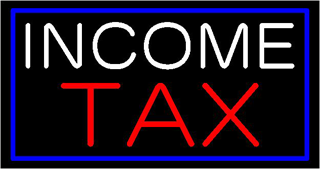DON'T BE TAKEN IN BY PHONY IRS REQUESTS
The phone rings. The caller says they are from the Internal Revenue Service and they claim you owe taxes and must submit payment through a wire transfer or prepaid debit card. Or you receive an email supposedly from the IRS asking you to share your bank account, credit card or Social Security number. What should you do?
The sad truth is that many scammers pretend to be IRS agents as part of identity theft or other criminal activity. If you receive a surprising or suspicious communication purportedly from the IRS, we would urge you to call us immediately. We can help you identify a bogus request for information and work with you to respond to a legitimate IRS contact. You can also call the IRS directly at 800-829-1040 to verify any communication you receive.
DOCUMENTING YOUR CHARITABLE DONATIONS
Many people make donations to charities whose work they support, but if you are planning to take a tax deduction for your gift, you must have the proper paperwork. Assembling the right documentation can also be tricky because the requirements vary based on whether the donation is cash and on the value of your gift. If you donate less than $250 in cash, for example, a canceled check, credit card statement or similar record may be sufficient, but if you give more, you will need a written acknowledgement from the charity. An additional tax form—and possibly an appraisal—may be needed for non-cash donations, depending on their value. Of course, the organization itself must also qualify as a charity under IRS rules.
We can offer advice that will make it possible for you to fund the causes you believe in and qualify for the deductions you deserve. We can also help you incorporate charitable giving into your long-term tax and estate planning. Be sure to contact us with all of your questions on charitable giving or any other financial concern.
ARE YOU SUBJECT TO THIS NEW TAX?
 You may find a little less in your tax refund this year if you are subject to the new 3.8% net investment income tax that went into effect at the beginning of 2013. It applies to married couples filing jointly with modified adjusted gross income (MAGI) over $250,000 and single people with MAGI above $200,000 (trusts and estates are also affected). It kicks in if you have net investment income, which includes interest, dividends, capital gains and rental and royalty income, among other items.
You may find a little less in your tax refund this year if you are subject to the new 3.8% net investment income tax that went into effect at the beginning of 2013. It applies to married couples filing jointly with modified adjusted gross income (MAGI) over $250,000 and single people with MAGI above $200,000 (trusts and estates are also affected). It kicks in if you have net investment income, which includes interest, dividends, capital gains and rental and royalty income, among other items.
If this income raised your tax bite for 2013, then it’s not too late to begin planning strategies to minimize this and other taxes for 2014. Be sure to contact us to talk about your best tax and financial planning options for the coming year.
CONQUER YOUR CAPITAL GAINS CONCERNS!
Do you take your cost basis into account when it’s time to sell an asset or investment? When you sell an asset or investment, your cost basis—or the amount you originally paid for it—is subtracted from the sales price to determine your capital gain on the sale. If your latest tax return included some surprises on capital gains you incurred last year—and the related taxes—then you’re probably aware of the need to plan ahead when buying or selling assets or investments. It’s even more important in light of some recent tax law changes, including the new tax on net investment income.
The good news is that we can help. Be sure to turn to us with questions about your overall investment strategies, as well as the tax implications of asset and investment purchases or sales. We can offer the advice you need to minimize your tax outlays and make the most of your investments.
SMART USES FOR YOUR TAX REFUND
 How should you spend your tax refund? Figuring out the answer is a nice problem to have and one that’s worth consideration. One of the best ways you can use an unexpected windfall like a tax refund is to pay down high-interest debt, such as credit card balances, because it will immediately lower your interest costs. If this is not an issue, you may wish to consider setting aside as much as possible in savings, whether that means a tax-advantaged retirement plan, college funding account or vacation nest egg. Use the balance to splurge, rewarding yourself for making some smart financial decisions.
How should you spend your tax refund? Figuring out the answer is a nice problem to have and one that’s worth consideration. One of the best ways you can use an unexpected windfall like a tax refund is to pay down high-interest debt, such as credit card balances, because it will immediately lower your interest costs. If this is not an issue, you may wish to consider setting aside as much as possible in savings, whether that means a tax-advantaged retirement plan, college funding account or vacation nest egg. Use the balance to splurge, rewarding yourself for making some smart financial decisions.
If you received a very large refund this year, you may want to consider adjusting your withholding or estimated payment amounts so that you can keep more money in your pocket during the year. We can provide guidance on all your tax questions, so think of calling our office first when making important financial decisions.